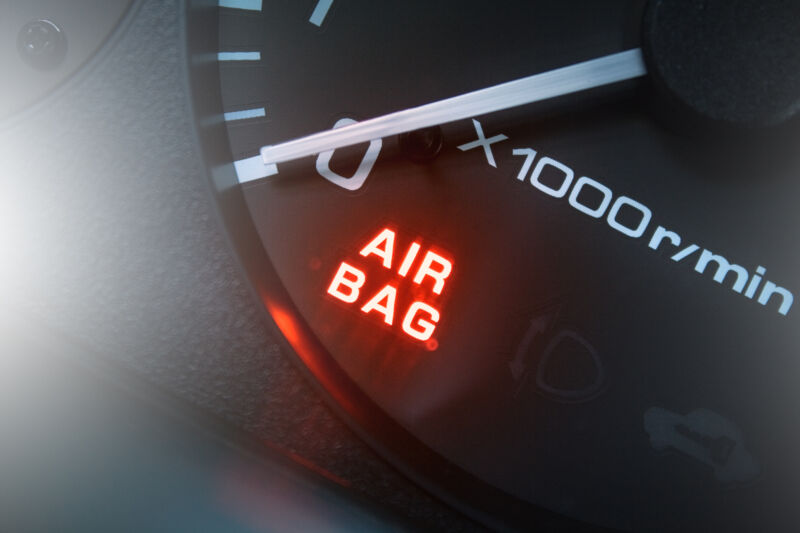
Getty Images
Both BMW and Stellantis are having to recall hundreds of thousands of vehicles in the US this month due to airbag problems. For BMW, the problem, which potentially affects 394,029 cars, is a continuation of the Takata airbag recall, the largest automotive recall in history. Stellantis has slightly fewer potentially affected cars, with 322,000 subject to recall, but for different problem caused by a suspect sensor in the seat belt buckle.
BMW
While the BMW recall will be sent to almost 400,000 owners, the company suspects only 1 percent of that population will have a problem that needs remedying. That’s because it wants dealers to check any cars where the owner has replaced the factory-fitted steering wheel with a Sport or M-Sport version equipped with a PSDI-5 inflator.
These inflators lack a desiccant or drying agent that would otherwise prevent the ammonium nitrate airbag propellant from taking on moisture, degrading the airbag’s performance to the point where it could overinflate and shower the interior with metal fragments. At least 24 people have been killed by defective Takata airbags in the US, which led to 42 million cars being recalled to fix the problem.
BMW’s recall affects the model year 2006–11 323i, 325i, 330i, 330Xi, 335i, 335Xi; the model year 2006–12 325Xi, 328i, 328Xi; and the model year 2009–11 335d. Should inspection find a replacement wheel with a Takata inflator, it will be replaced with a new airbag module, BMW says.
Stellantis
The Stellantis recall appears to affect cars produced in Italy: the model year 2017–24 Alfa Romeo Giulia, model year 2018–24 Alfa Romeo Stelvio, model year 2024 Fiat 500E, model year 2019–23 Fiat 500X, and model year 2019–23 Jeep Renegade.
Here, the problem is not an airbag inflator but the Hall effect sensor, supplied by ZF, on the seat belt buckle—or, more specifically, the wiring that connects that sensor to the car’s internal network. Suspect connectors were used in different models at different times, some as early as 2016 and some as late as this June. In cars with faulty Hall effect sensor wiring, the airbag may not trigger during a crash.
Stellantis says that dealers will directly wire the sensor to the wiring harness with a solder tube in affected cars.




















+ There are no comments
Add yours